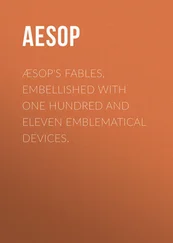Pamela Erens - Eleven Hours
Здесь есть возможность читать онлайн «Pamela Erens - Eleven Hours» весь текст электронной книги совершенно бесплатно (целиком полную версию без сокращений). В некоторых случаях можно слушать аудио, скачать через торрент в формате fb2 и присутствует краткое содержание. Год выпуска: 2016, Издательство: Tin House, Жанр: Современная проза, на английском языке. Описание произведения, (предисловие) а так же отзывы посетителей доступны на портале библиотеки ЛибКат.
- Название:Eleven Hours
- Автор:
- Издательство:Tin House
- Жанр:
- Год:2016
- ISBN:нет данных
- Рейтинг книги:4 / 5. Голосов: 1
-
Избранное:Добавить в избранное
- Отзывы:
-
Ваша оценка:
- 80
- 1
- 2
- 3
- 4
- 5
Eleven Hours: краткое содержание, описание и аннотация
Предлагаем к чтению аннотацию, описание, краткое содержание или предисловие (зависит от того, что написал сам автор книги «Eleven Hours»). Если вы не нашли необходимую информацию о книге — напишите в комментариях, мы постараемся отыскать её.
Eleven Hours
Eleven Hours — читать онлайн бесплатно полную книгу (весь текст) целиком
Ниже представлен текст книги, разбитый по страницам. Система сохранения места последней прочитанной страницы, позволяет с удобством читать онлайн бесплатно книгу «Eleven Hours», без необходимости каждый раз заново искать на чём Вы остановились. Поставьте закладку, и сможете в любой момент перейти на страницу, на которой закончили чтение.
Интервал:
Закладка:
The baby that never cried, that raised its fist to the sky — it scraped her out, made her womb unfit to carry any more children. That baby that was fashioned so easily, out of the one time she let Maarten stay inside her. He had insisted that pulling out reduced his seed, would shrivel him over time like a curse from Ki Titha. She was only sixteen but she knew better. She heard a great deal from the laboring women she helped along. And nearly everyone knew that if the man didn’t pull out you might get SIDA. But she let him stay that one time. Fatigue from fighting him, maybe. Maybe the sense of loneliness when the man’s body withdrew so quickly, and you felt the cold between your legs and the abrupt sense of separateness again.
She was lucky her mother and father did not beat her or force her to become Maarten’s woman when she swelled up with his child. Most daughters would have suffered that. Maarten, with his unblemished skin, his slim hips, his pretty singing voice. She hadn’t been fooled for a moment by his talk of love, of promising to care for her always; she knew he had other girls. But she was curious about pleasure and he gave it to her. Her parents did not force her to tie herself to this light-minded, unreliable, delicious boy. They disliked his family — Franckline’s father knew something against Maarten’s father that he would never articulate — and were content to bury the association. But the kindness and gentleness that had always been in her mother cooled and evaporated, and Franckline became like a guest politely tolerated in her own home. Her mother went through the dutiful motions of serving food to Franckline’s plate, of reminding her to say her evening prayers. But her soft, murmuring patter dried up near Franckline. Her every gesture expressed shame that her daughter could not control her body, could not stay pious and clean. And Franckline’s shame at her mother’s shame spread deep into her bones, settled there like an ache. Perhaps that was when the baby inside started to die. Started its long process of dying that would be completed only outside the womb. Her mother’s quiet disapproval and withdrawal was a death in itself, and Franckline’s despair at it was transmitted, she is sure of it, to the child. She transgressed twice, first by making the child, then by giving it her despair, the despair that made it unable to live.
And she has been punished. Punished with a womb scraped of all the necessary ingredients for health and flowering. Yet she hopes.
(But Bernard says to her: This is nonsense, what you tell yourself, Franckline. You can’t kill a child with thoughts, with sadness. And there is no punishment: a bicornate uterus, Franckline, a simple medical fact; you were born that way .
She knows all that, of course. Who knows better than she, with her training, her knowledge of anatomy? Yet over and over she needs him to say it to her.)
“And how are we doing here!” calls out a young, plump, fair-skinned nurse as she enters room 7. Lore looks up, relieved. The moment Franckline walked out, the room went still, like a ship when the wind shifts and dies. It felt so strange; and then Lore had gazed around at the couch against the big window and the computer monitor and the little cabinets with who knows what hidden behind them — linens, bandages, stuff to be smeared and sprayed — and down at the monstrous bed, with its white sheets and cranks and levers and her own hurt, breathing form. It was completely silent. It had made her sink and plunge for a moment, she who was never afraid of being alone. She had always known how to be alone. Yet for a moment (Franckline had left, so quickly, to go to the restroom) the edifice had shaken; she had wobbled. For several minutes she listened to her rapidly beating heart, taking long, slow breaths. But her heart would not give up its panic; it rattled on, afraid. Here is someone new, however. Perhaps she will be someone to hold onto.
“I’m all right,” she says hopefully. The nurse, turning away, plucks Lore’s chart from the door.
“Laura, Laura,” she says. “Thirty-one, primigravida, forty weeks and two days pregnant, uh-huh, five feet nine inches, weight 179. Blood pressure, yup. Okay, Dr. Merchant checked you at 9:03 AM, fifty percent effaced, three centimeters dilated.”
“It’s Lore,” says Lore.
“Okay,” says the nurse. She gives Lore a quizzical look. “Where is your monitor?”
“I wear it once an hour. Dr. Elspeth-Chang said it was okay. I want to be able to walk around.”
The nurse frowns. “We can’t keep track of the baby if you don’t wear it all the time.”
Lore tenses at the phrase. These hospital people think keeping track is everything, the whole thing. “The doctor is fine with it. The other nurses have been fine with it. I understand the risks.” She’d like to inform the nurse that there are risks associated with using the monitor, too — Betsy had had plenty to say about that — but this isn’t the time or place for a lecture, and the nurse is clearly not going to be swayed. She still hasn’t gotten close enough for Lore to read her ID tag.
The nurse scans Lore’s chart again, lingering over something that must be Franckline’s notation about the monitor, glances at the clock. She flips through the rest of the chart, removes Lore’s birth plan, looks at the first sentence or two, then puts it back. She gazes around the room as if in search of something she can improve.
“Let me spruce up that pillow for you,” she says, and although it creates an uncomfortable pressure, Lore bends forward to let the nurse — Carol: the ID tag has finally appeared in her sight line — remove the pillow and replace it. Carol presses a button and the head of the bed reclines a couple of inches.
“Could you leave the bed alone?” Lore says sharply. “I liked it the way it was.” In fact she’s not sure she cares either way, but what gives this woman the right to come in and change things around, get snarky about the monitor, insist her pillow needs to be plumped?
“Of course, of course,” says Carol, smiling. She returns the backrest to its position.
A memory, obvious in its connection, prods at Lore. She and Asa had been in the apartment on the Upper West Side for a couple of months. They’d decorated indifferently, neither of them much interested in furniture, or things matching, so long as there was a nice bed and a few comfortable places in the living room to sit. There was a battered couch Lore had bought from her old roommates and an Ikea bookcase she and Asa had put together. Julia had a key to the place; it was Lore herself who had the idea and got it made. The apartment was closer to Julia’s latest waitressing job than Julia’s own; why not give her a place to grab a snack and put up her feet between shifts?
At first Asa said no. “Look, Julia and I have a complicated history. This should be our space, yours and mine.” But Lore — prompted by what? A desire to please Julia and show that she trusted her? Trusted Asa? — insisted. She felt it would be mean not to offer; perhaps Julia was even expecting her to do so and would be hurt and annoyed if she didn’t. All right, Asa finally agreed; let’s hope she doesn’t abuse it. He said Julia didn’t always have boundaries . He didn’t want to come in at night and find her hanging out.
Julia didn’t abuse her right. As planned, she came only after shifts to rest up; otherwise she rang the bell and waited to be let in. But one afternoon Lore returned after school to find Julia reading a paperback and the couch in a completely different place than it had been that morning. There was a brightly colored cloth over the coffee table, with irregular splatters of reddish-brown on it. Lore couldn’t tell for sure whether the splatters were old wine stains or part of the design. That was so Julia. The table where Asa and Lore ate meals was at a right angle to the kitchen pass-through rather than flush against it, and Julia had taken the chair in the bedroom where Lore threw her dirty clothes and set it up near the walled-up fireplace. Lore began to laugh in discomfort.
Читать дальшеИнтервал:
Закладка:
Похожие книги на «Eleven Hours»
Представляем Вашему вниманию похожие книги на «Eleven Hours» списком для выбора. Мы отобрали схожую по названию и смыслу литературу в надежде предоставить читателям больше вариантов отыскать новые, интересные, ещё непрочитанные произведения.
Обсуждение, отзывы о книге «Eleven Hours» и просто собственные мнения читателей. Оставьте ваши комментарии, напишите, что Вы думаете о произведении, его смысле или главных героях. Укажите что конкретно понравилось, а что нет, и почему Вы так считаете.












